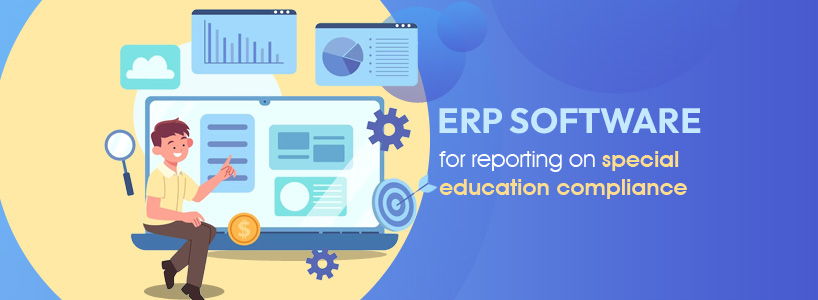ERP Software for Reporting on Special Education Compliance

Special education compliance can be a complex and time-consuming task. Schools and districts must adhere to a myriad of federal and state regulations, ensuring that students with disabilities receive appropriate services and accommodations. To streamline this process and improve efficiency, many organizations are turning to Enterprise Resource Planning (EduAutomate) software.
What is ERP Software?
ERP software is a suite of integrated applications that manage an organization's core business processes, including finance, HR, and operations. In the context of special education, ERP systems can be customized to track student data, generate reports, and monitor compliance with various regulations.
Key Benefits of ERP Software for Special Education Compliance
Centralized Data Management :
- Single Source of Truth: ERP systems provide a centralized repository for all student data, including IEPs, assessments, and progress reports.
- Real-Time Access: Authorized personnel can access and update information from anywhere, at any time, ensuring timely decision-making.
Automated Reporting:
- Pre-built Templates: ERP software often comes with pre-built templates for generating standard reports, such as student progress reports, Section 504 plans, and annual reviews.
- Customizable Reports: Users can create custom reports to meet specific needs, such as tracking student performance on specific IEP goals or identifying students who may be at risk of academic failure.
Improved Efficiency:
- Streamlined Workflows: ERP systems can automate many routine tasks, such as scheduling IEP meetings, generating paperwork, and tracking deadlines.
- Reduced Administrative Burden: By automating tasks, ERP software frees up staff time to focus on providing direct services to students.
Enhanced Compliance:
- Real-Time Monitoring: ERP systems can help identify potential compliance issues early on, allowing for timely corrective action.
- Audit Trail: A detailed audit trail can be maintained, documenting all changes and decisions related to student services.
Choosing the Right ERP Software
When selecting an ERP solution for special education, consider the following factors:
- Customization Capabilities: The software should be flexible enough to accommodate the unique needs of your district or school.
- Integration with Other Systems: The ERP system should seamlessly integrate with other software, such as student information systems and learning management systems.
- User-Friendliness: The system should be easy to learn and use, with a user-friendly interface.
- Security and Data Privacy: The software should have robust security measures to protect sensitive student information.
- Vendor Support: Reliable vendor support is essential for troubleshooting issues and getting timely updates.
By leveraging the power of ERP software, schools and districts can streamline their special education processes, improve compliance, and ultimately enhance the educational experience for students with disabilities.
-
21 May, 2025 at 2:53 pmWhat a refreshing take on the topic discussed here! It feels like a breath of fresh air.
Add a Comment
Your email address will not be published. Required fields are marked *
Categories
Popular Posts
![Customer, Lead, or Deal? Understanding CRM Sections for Smarter Sales [thumb]](https://blogimages.weblink.in/customer-lead-or-deal-understanding-crm-sections-for-smarter-sales-350x128.jpg)
Customer, Lead, or Deal? Understanding CRM Sections for Smarter Sales
![How EduAutomate Brings Real-Time Visibility to All Admin Operations? [thumb]](https://blogimages.weblink.in/how-eduautomate-brings-real-time-visibility-to-all-admin-operations-350x128.jpg)
How EduAutomate Brings Real-Time Visibility to All Admin Operations?
![How CRM Vendor Management Enhances Your Procurement Process [thumb]](https://blogimages.weblink.in/how-crm-vendor-management-enhances-your-procurement-process-350x128.jpg)